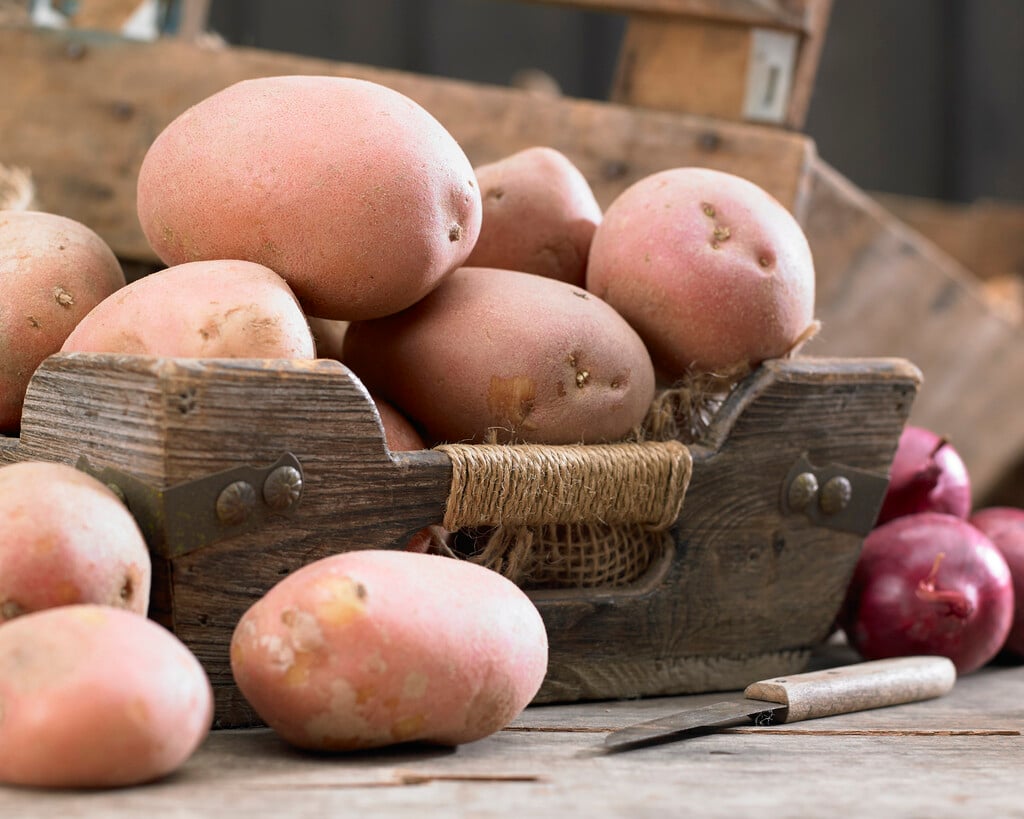Size
Ultimate height
0.5–1 metresTime to ultimate height
1 yearUltimate spread
0.5–1 metresGrowing conditions
Moisture
Moist but well–drainedpH
Acid, Alkaline, NeutralColour & scent
| Stem | Flower | Foliage | Fruit | |
| Spring | White | Green | ||
|---|---|---|---|---|
| Summer | White | Green | ||
| Autumn | ||||
| Winter |
Position
- Full sun
- Partial shade
Aspect
South–facing or West–facing
Exposure
Sheltered Hardiness
H2Botanical details
- Family
- Solanaceae
- Native to GB / Ireland
- No
- Foliage
- Deciduous
- Habit
- Bushy, Clump forming
- Potentially harmful
- Harmful if eaten, except potato crop. Wear gloves and other protective equipment when handling. Pets (dogs): Harmful if eaten, except potato crop - for further information and contact numbers regarding pets, see the HTA guide to potentially harmful plants
- Genus
Solanum can be annuals, perennials, evergreen or deciduous shrubs or twining climbers, with simple or pinnnately lobed leaves and star- or bowl-shaped, 5-lobed flowers with prominent stamens, followed by fleshy fruits
- Name status
Accepted
How to grow
Cultivation
Grow in fertile, moisture-retentive soil for high quality and heavy yields. Improve soil by adding organic matter in autumn. Draw earth up around the stems as they emerge, to exclude light and prevent the potatoes from becoming green. Water well in dry periods. Potatoes can also be grown in large containers or potato grow bags. See potato cultivation for further advice
Propagation
Grow from certified seed potatoes
Suggested planting locations and garden types
- Patio and container plants
Pruning
No pruning required
Pests
May be susceptible to cutworms, slugs, wireworms, leaf and bud eelworm, Potato cyst nematodes
Diseases
May be susceptible to honey fungus (rarely), Potato scab and Potato blight and may be susceptible to Potato rot, Potato blackleg and stem canker
Get involved
The RHS is the UK’s gardening charity, helping people and plants to grow - nurturing a healthier, happier world, one person and one plant at a time.
